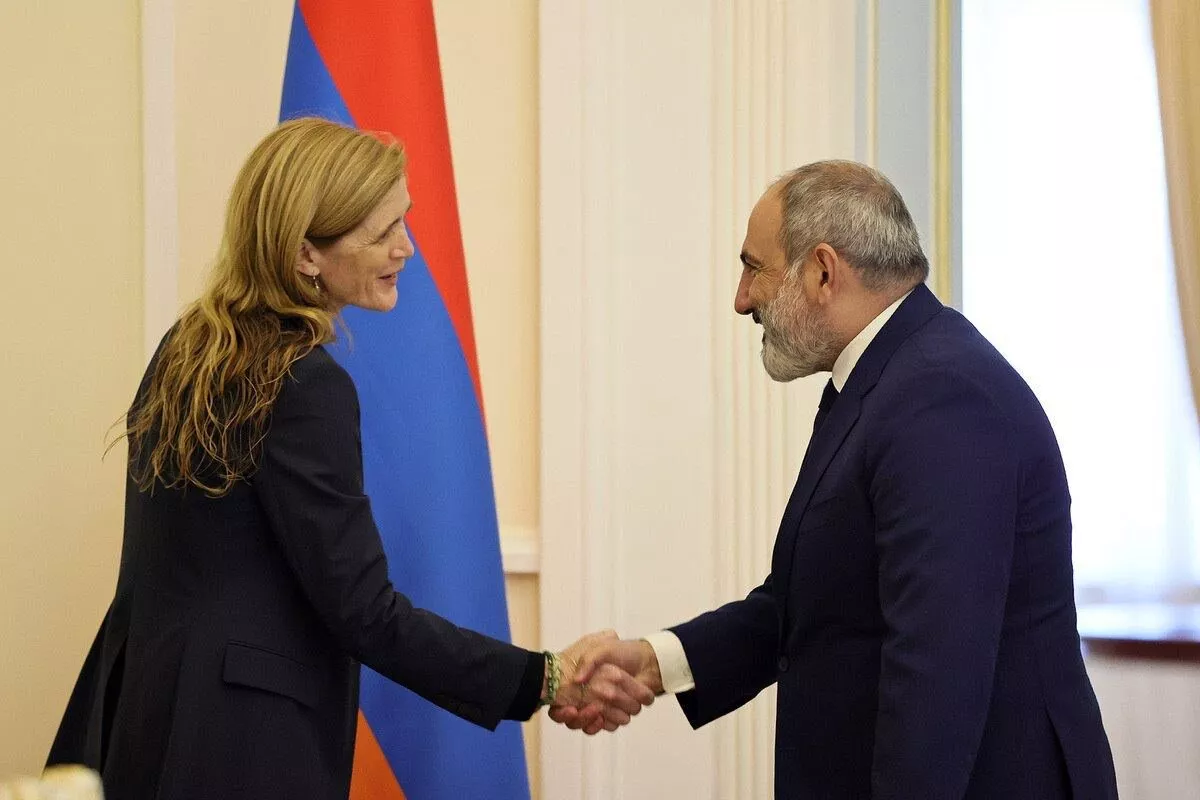USAID’s big payoff to Armenia: Is it more about influence than aid? Catalyst for regional strife
Armenian media are buzzing with news that the U.S. Agency for International Development (USAID) is significantly increasing its financial support to Armenia, raising it from $120 million to $250 million. This new agreement, signed by Deputy Prime Minister Mher Grigoryan and USAID Armenian Mission Director John Alelo, will fund initiatives in disaster risk management, cybersecurity, food and energy security, regional cooperation and trade, democratic processes, and inclusive economic development.
USAID, one of the world’s largest aid organizations with an annual budget of approximately $27 billion, has earmarked $9 billion from its 2023-2025 budget to bolster civil society in various countries. The agency’s funding mechanisms, however, have faced criticism for primarily supporting opposition groups under the guise of promoting democratic development.

Given Pashinyan's revolutionary background and his connections with American financial and intelligence networks, it's clear that Yerevan is poised to receive another incentive from USAID as part of its strategic partnership with the United States. Notably, Washington has already begun to fulfill several commitments outlined in the Brussels agreements of April 5, 2024. This meeting, which included discussions between Nikol Pashinyan, Ursula von der Leyen, and Anthony Blinken, has led to significant developments. Following the meeting, Armenia prioritized the issue of removing Russian border guards from Yerevan's airport. Their withdrawal was completed by August 1, and the very next day, the U.S. sent arms and military personnel to Armenia, positioning them in Zangezur. This move underscores the U.S. intention to leverage Armenia as a strategic base to enhance its influence in the region and heighten regional tensions.
Simultaneously, the United States is exploring the possibility of granting Armenia access to American civilian nuclear technologies, as outlined in the 123 Agreement, should Armenia formally request it.
Additionally, the U.S. plans to provide Armenia with funds through the Foreign Military Financing (FMF) program. This initiative is designed to enhance Armenia's access to advanced military equipment and cutting-edge technologies. The FMF program, a cornerstone of U.S. foreign policy, supports allies and partners by offering grants or loans for equipment purchases, training, and other military needs. Through this program, the U.S. aims to boost Armenia's access to high-tech equipment and promote the widespread adoption of GPS Global Positioning System technology across the country.

The US-Armenian military exercise, Eagle Partner 2024, held from July 15 to 24, 2024, in Armenia, should be viewed within the broader context of regional security concerns in the South Caucasus. This exercise is part of a strategy aimed at advancing geopolitical objectives in the region and raises significant questions about the implications for regional stability.
In conjunction with the increase in USAID funding to Armenia, this development aligns with the agency's pattern of subversive activities in the South Caucasus. Notably, USAID was implicated in a scandal in Georgia last October, where it faced allegations of attempting to orchestrate a coup d'état. Georgian security services revealed documents from training sessions held in Tbilisi from September 26 to 29, which indicated preparations for such a coup with USAID's involvement.
In Azerbaijan, USAID's actions have also been scrutinized for their subversive nature. However, the unity and resilience of the Azerbaijani people and government have successfully countered these threats. The increased financial support from USAID to the Pashinyan government highlights Armenia's role as a focal point for American covert activities in the South Caucasus, suggesting it serves as a base for such operations in the region.
On the other hand, it's important to recognize that USAID's increased activity in Armenia appears to be working against the interests of regional states, particularly Azerbaijan and Turkey. This is evident from the baseless accusations leveled against Azerbaijan and the efforts to sway Armenian public opinion under the guise of defending the rights of Karabakh Armenians. There is a concern that USAID’s activities, reportedly coordinated by the State Department, might be intended to destabilize the Armenian-Azerbaijani peace process, despite assurances from U.S. officials that their efforts are solely focused on enhancing Armenia's security and border integrity. This stance seems inconsistent, given that the U.S. did not emphasize Azerbaijan's territorial integrity during the 30 years of occupation of Azerbaijani territories. Such double standards are apparent.
Moreover, one of the most pressing issues for Azerbaijan's return to liberated territories is the threat posed by landmines. Azerbaijan is among the most mine-affected countries globally, yet the U.S. has not provided substantial support for mine clearance efforts. This suggests a lack of genuine concern for the rights of Azerbaijanis to return to Karabakh. Instead, the U.S. appears to be concentrating its support on Armenia. If the U.S. genuinely seeks peace in the region, it should reconsider its unilateral support for Armenia, particularly its military assistance, which seems to foster revanchism rather than promote stability.
Given USAID's overtly pro-Armenian stance, exemplified by its head, Samantha Power, who has maintained close connections with former Karabakh junta "state minister" Ruben Vardanian and is a member of the Aurora Prize committee, the organization's generous gestures toward Armenia come as no surprise. This situation underscores the influence of the Armenian lobby on USAID, which is deeply involved in advancing U.S. state interests abroad.
Such a policy, including USAID's actions, is likely to cause further complications in the region, particularly as American interests in the South Caucasus intensify. However, it's important to remember Armenia's well-known unpredictability. The country is still a member of CSTO and EAEU, and it hosts the 102nd Russian military base, along with a joint Russian-Armenian military grouping and air defence system. Recently, Armenian politicians and officials have also been renewing their overtures toward Russia. Consequently, Armenia might continue to align closely with Russia, leaving the U.S. in a challenging position. If Armenia remains in Russia's sphere of influence, the U.S. could find itself isolated in the region, as local states may shy away from close cooperation with Washington due to the tensions exacerbated by its policies.








